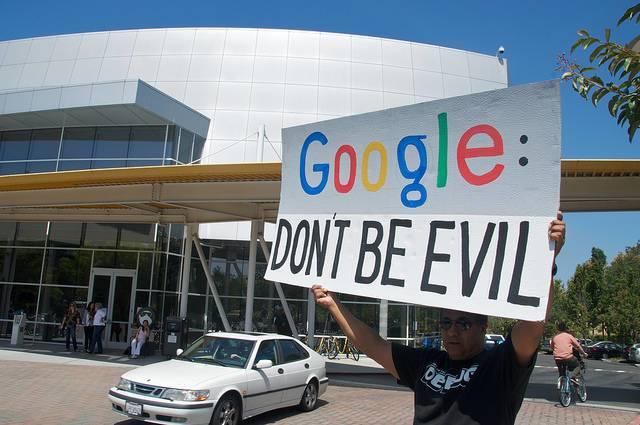
YouTube is a favorite time suck for many of us, and for countless good reasons. Uploading videos is seamless and fast, and watching content -- from cute kitties to math classes at Khan Academy -- makes it an easy service to use. Whether you seek self-improvement or just want to waste time, YouTube has become the site and app of choice. Various statistics suggest that 300 to 400 hours of content are uploaded on YouTube every minute, and 5 billion videos are enjoyed daily.
But all of that content has triggered headaches for many advertisers, and now YouTube and its parent, Alphabet (the parent company of Google), have taken a financial hit.
The risk that a brand’s advertisements can run alongside a sexist outburst or an Islamic State rant on YouTube has caused many online marketers to yank their content from the popular video sharing site. JPMorgan Chase, for example, joined companies such as Johnson & Johnson, Coca-Cola and Walmart in halting their ad campaigns due to growing consumer backlash.
Google said this problem only amounts to “very, very, very small numbers” of ads running on YouTube. But for a major global brand, the risk of consumer outrage if an ad is placed before or during a racist or hate-filled diatribe on YouTube is very, very, very big.
To that end, Google said it will roll out a new system that permits third-party companies to evaluate quality standards on YouTube. But considering the vast amount of content that is added to the site, human eyeballs may not be enough.
Bloomberg’s Mark Bergen is among many analysts who inferred that Google did not move quickly enough to quell what has now become a crisis. So, could artificial intelligence help repair and resuscitate YouTube’s reputation and revenues?
Machine learning techniques could be the ticket to weeding out those dodgy videos. Google says it has already been researching and investing in the technology over the past five years. In layperson’s terms, this technology is going far beyond the zeroes and ones that have been the foundation of computer science for decades. As artificial intelligence pioneer Arthur Samuel described machine learning almost 60 years ago, this sub-field of computer technology “gives computers the ability to learn without being explicitly programmed.”
As New York Times technology writer Daisuke Wakabayashi reported this week, Google has already applied this technology to monitoring some of YouTube’s content – mostly to root out easily identifiable copyrighted content or pornography. But the next frontier for machine learning is granting the systems an ability to understand context. After all, teenagers filming themselves acting out a parody of "The Bourne Identity" series, or septuagenarians pretending to be James Bond, are not quite the same as an online diary of some right-wing militia urging an uprising against anyone non-white. The same goes for a DIY video on how to cook meth compared to a media geek’s review of an episode of "Breaking Bad."
For now, the artificial intelligence used at Google cannot differentiate such nuances – but that could soon change.
Google told the Times it is accelerating the application of machine-learning techniques to YouTube’s service, complemented by researchers who are developing an automated system that can determine a video’s appropriateness for public viewing.
With 3 million advertising-supported channels on YouTube, it could take years for such a process to approach anything near perfection. But for Google and its deep-pocketed advertisers, there is really no other option if YouTube will remain both popular and profitable.
Image credit: Steve Rhodes/Flickr

Leon Kaye has written for 3p since 2010 and become executive editor in 2018. His previous work includes writing for the Guardian as well as other online and print publications. In addition, he's worked in sales executive roles within technology and financial research companies, as well as for a public relations firm, for which he consulted with one of the globe’s leading sustainability initiatives. Currently living in Central California, he’s traveled to 70-plus countries and has lived and worked in South Korea, the United Arab Emirates and Uruguay.
Leon’s an alum of Fresno State, the University of Maryland, Baltimore County and the University of Southern California's Marshall Business School. He enjoys traveling abroad as well as exploring California’s Central Coast and the Sierra Nevadas.














